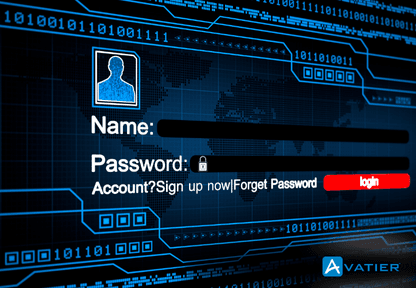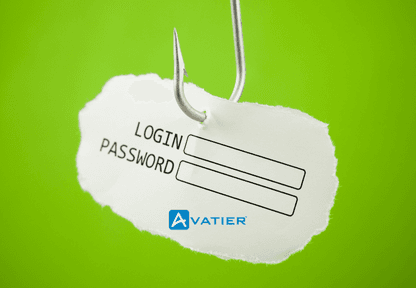August 14, 2025 • Mary Marshall
Securing the Digital Supply Chain: Why Advanced Access Control Is Critical in 2025
Discover how AI-powered identity management solutions strengthen supply chain security against emerging threats, and reduce breach risks.
Digital supply chains have become the backbone of global commerce. However, this interconnectedness introduces significant vulnerabilities that malicious actors are increasingly exploiting. As we navigate through 2025, the importance of robust access control within supply chain management has never been more critical.
The Evolving Supply Chain Security Landscape
The digital transformation of supply chains has accelerated dramatically, with 71% of organizations fast-tracking their digital initiatives during the pandemic, according to McKinsey. Yet this rapid digitization has expanded the attack surface exponentially. In 2024, supply chain attacks increased by 37% compared to the previous year, with compromised vendor access accounting for 62% of these breaches.
Supply chain attacks are particularly devastating because they exploit trusted relationships between organizations and their vendors, partners, and suppliers. The SolarWinds breach of 2020 served as a watershed moment, demonstrating how a single compromised vendor could affect thousands of downstream organizations, including government agencies and Fortune 500 companies.
Why Access Control Is the Cornerstone of Supply Chain Security
Access control is no longer just about protecting internal systems—it’s about securing the entire ecosystem of connections that make up your digital supply chain.
The Principle of Least Privilege in Supply Chain Context
In manufacturing environments, where production systems connect to supplier networks, implementing least privilege access is essential. According to a 2023 manufacturing security report, 76% of manufacturing companies experienced unauthorized access attempts through third-party connections.
Avatier’s Identity Management Anywhere for Manufacturing provides specialized solutions that address these unique challenges by implementing fine-grained access controls that limit supplier and partner access to only the specific systems they need to fulfill their functions. This dramatically reduces the attack surface and limits the potential damage from compromised credentials.
Third-Party Risk Management Through Access Governance
Third-party risk management has become inseparable from access control. According to Gartner, by 2025, 60% of organizations will use cybersecurity risk as a primary determinant in conducting third-party transactions and business engagements. Effective access governance solutions provide the framework to:
- Implement automatic provisioning and de-provisioning to eliminate orphaned accounts
- Conduct regular access certification reviews for all external users
- Enforce separation of duties to prevent conflicting access rights
- Maintain comprehensive audit trails for all access activities
Balancing Security with Operational Efficiency
Supply chain operations require agility and speed. Implementing stringent access controls shouldn’t come at the cost of operational efficiency. Modern identity management solutions need to strike a balance between security and usability.
Avatier’s solutions are designed with this balance in mind, providing self-service capabilities that empower users while maintaining strict security controls. This approach reduces the administrative burden on IT teams while ensuring that access requests go through proper approval workflows.
Emerging Threats to Supply Chain Access Security in 2025
AI-Powered Social Engineering
Artificial intelligence has transformed social engineering attacks. Deepfakes and AI-generated content are being used to impersonate executives and authorize fraudulent access requests or financial transactions. According to the Identity Theft Resource Center, AI-powered impersonation attacks increased by 248% in 2024.
Sophisticated Software Supply Chain Attacks
The compromise of development tools and code repositories has become a primary vector for supply chain attacks. In 2024, 22% of organizations experienced security incidents related to compromised open-source components, highlighting the need for strict access controls around development environments.
Cloud Configuration Vulnerabilities
As supply chains migrate to multi-cloud environments, misconfigurations have emerged as a leading cause of security incidents. Gartner reports that through 2025, 99% of cloud security failures will be the customer’s fault, primarily due to misconfiguration.
Building Resilient Access Control for Supply Chain Security
Implementing Zero Trust for Supply Chain Access
Zero Trust principles are particularly relevant for supply chain security. The traditional network perimeter has dissolved, and organizations must verify every user, device, and connection attempt, regardless of source.
According to Okta’s State of Zero Trust Security 2024 report, organizations with mature Zero Trust implementations experienced 47% fewer security incidents than those without. Implementing Avatier’s Multi-Factor Authentication solutions as part of a Zero Trust strategy ensures that even if credentials are compromised, additional verification layers prevent unauthorized access.
Embracing AI-Driven Identity Intelligence
AI and machine learning are revolutionizing access control by detecting anomalous behavior that might indicate compromised accounts. These technologies can:
- Establish behavioral baselines for users and entities
- Detect unusual access patterns that may indicate compromise
- Automatically enforce step-up authentication for suspicious activities
- Predict potential access risks before they materialize
Avatier’s AI-driven identity management capabilities provide real-time risk assessment and adaptive authentication based on contextual factors, significantly reducing the window of opportunity for attackers exploiting compromised credentials.
Continuous Monitoring and Access Recertification
Static access controls are inadequate in today’s dynamic supply chain environments. Implementing continuous monitoring and regular access recertification ensures that access rights remain appropriate even as roles and relationships evolve.
According to SailPoint’s Identity Security Report, organizations that implement automated access certification reduce inappropriate access by 66% compared to those relying on manual processes. Avatier’s Access Governance solutions automate these processes, ensuring that access rights are regularly reviewed and validated against current business needs.
Compliance Considerations for Supply Chain Access Control
Regulatory Requirements Impacting Supply Chain Security
The regulatory landscape for supply chain security is evolving rapidly:
- CMMC (Cybersecurity Maturity Model Certification): Defense contractors must now validate their security practices, including access controls for their entire supply chain.
- EU NIS2 Directive: Expanded scope includes critical suppliers and imposes strict security requirements, including access control measures.
- SEC Cybersecurity Disclosure Rules: Public companies must disclose material cybersecurity incidents, including those originating from supply chain partners.
To meet these complex compliance requirements, many organizations are turning to specialized identity management solutions that provide comprehensive compliance frameworks and reporting capabilities.
Industry-Specific Access Control Requirements
Different industries face unique regulatory challenges when it comes to supply chain access control:
Manufacturing and Critical Infrastructure
Manufacturing environments must comply with standards like NIST 800-82 for industrial control systems security. Avatier for Manufacturing provides specialized solutions for securing OT/IT convergence zones while maintaining operational efficiency.
Healthcare Supply Chains
Healthcare organizations must ensure HIPAA compliance across their entire supply chain. According to a recent healthcare security survey, 63% of healthcare data breaches involve third-party vendors. HIPAA Compliant Identity Management solutions provide the structured access controls needed to protect sensitive patient information across complex healthcare supply chains.
Financial Services
Financial institutions face stringent regulatory requirements from bodies like the SEC, FINRA, and international regulators. Avatier’s solutions for the financial sector include specialized controls to meet requirements like separation of duties and privileged access management.
Future-Proofing Supply Chain Access Control
Quantum-Resistant Authentication
As quantum computing advances, current encryption standards may become vulnerable. Forward-thinking organizations are already implementing quantum-resistant authentication methods to protect their supply chain access systems from future threats.
Decentralized Identity for Supply Chain Participants
Blockchain-based decentralized identity solutions offer promising approaches to supply chain access management by providing immutable, verifiable credentials that can be used across organizational boundaries without centralized points of failure.
Predictive Access Risk Management
The next frontier in supply chain access security is predictive risk analysis. Advanced analytics will enable organizations to identify potential access vulnerabilities before they can be exploited, shifting from reactive to proactive security postures.
Implementing a Comprehensive Supply Chain Access Strategy
To effectively secure your digital supply chain in 2025 and beyond, consider this strategic approach:
- Conduct a supply chain access audit: Map all connections, identify who has access to what, and evaluate the current state of access controls.
- Implement identity lifecycle management: Ensure that access is properly provisioned, modified, and revoked throughout the entire identity lifecycle, including for external users and entities. Avatier’s Identity Anywhere Lifecycle Management provides comprehensive solutions to automate these processes.
- Deploy adaptive, context-aware authentication: Move beyond static access controls to dynamic, risk-based authentication that considers context, behavior, and risk factors.
- Establish continuous monitoring: Implement real-time monitoring of access activities with automated alerts for suspicious behavior.
- Regular testing and validation: Conduct periodic penetration testing and access control validation exercises to identify vulnerabilities before they can be exploited.
Conclusion
As digital supply chains grow increasingly complex and interconnected, access control has emerged as the critical security foundation. Organizations that implement comprehensive, intelligent access management strategies across their supply ecosystems will be best positioned to mitigate risks while maintaining the operational efficiency required for competitive advantage.
By embracing advanced identity management solutions like those offered by Avatier, organizations can protect their supply chains from emerging threats, ensure compliance with evolving regulations, and build resilient security postures that adapt to the changing threat landscape.
In 2025’s interconnected business world, your supply chain security is only as strong as your access controls. By prioritizing this critical aspect of security, organizations can significantly reduce their risk exposure while enabling the trusted connections that power modern commerce.









